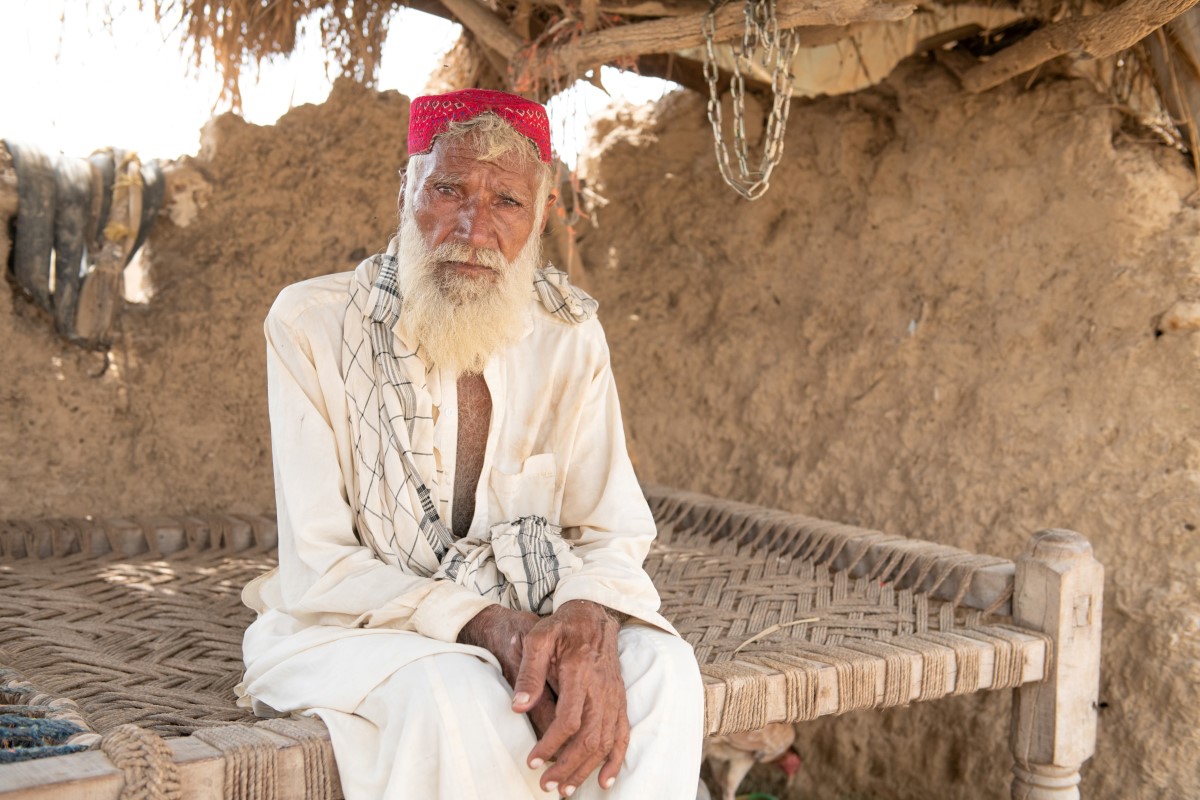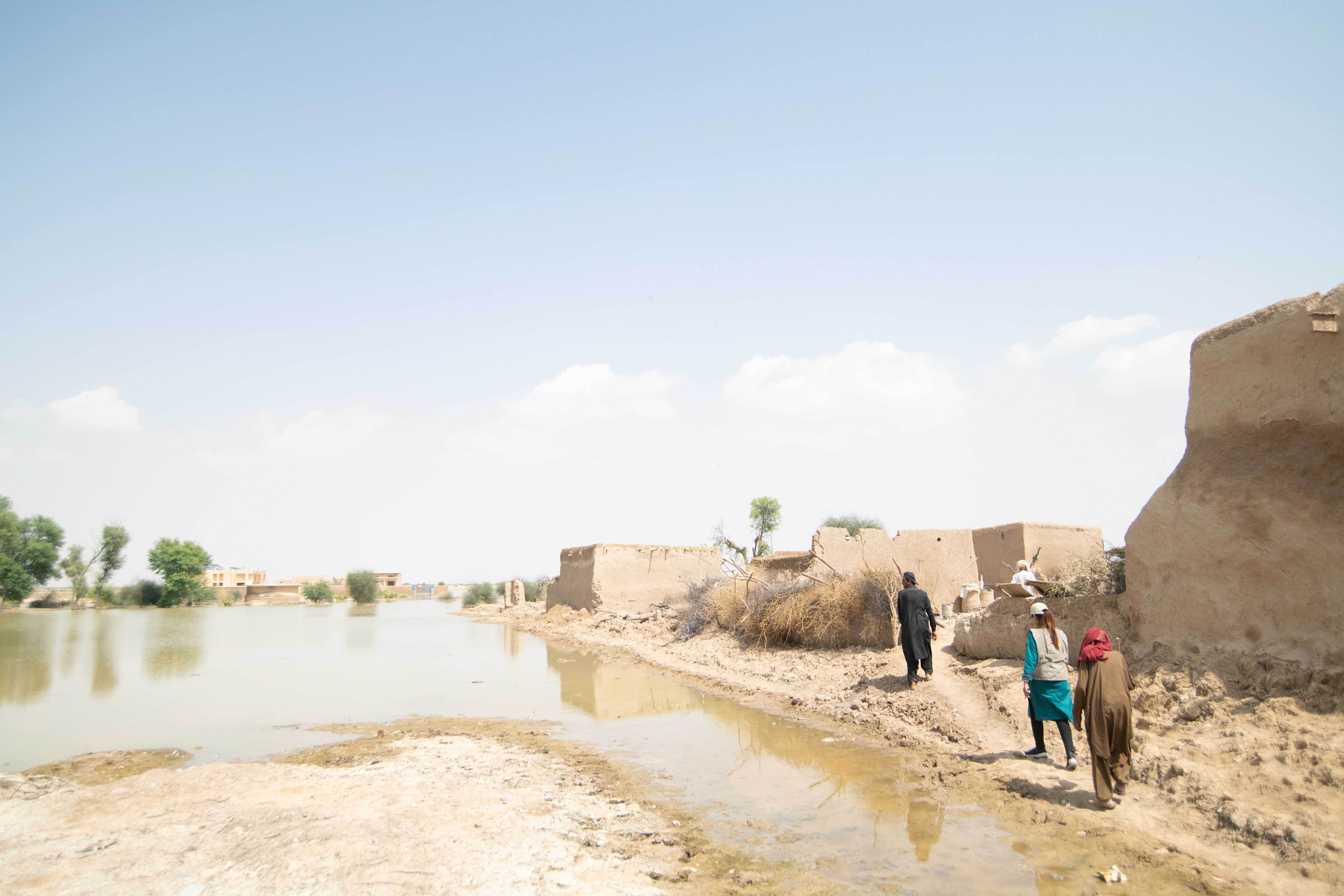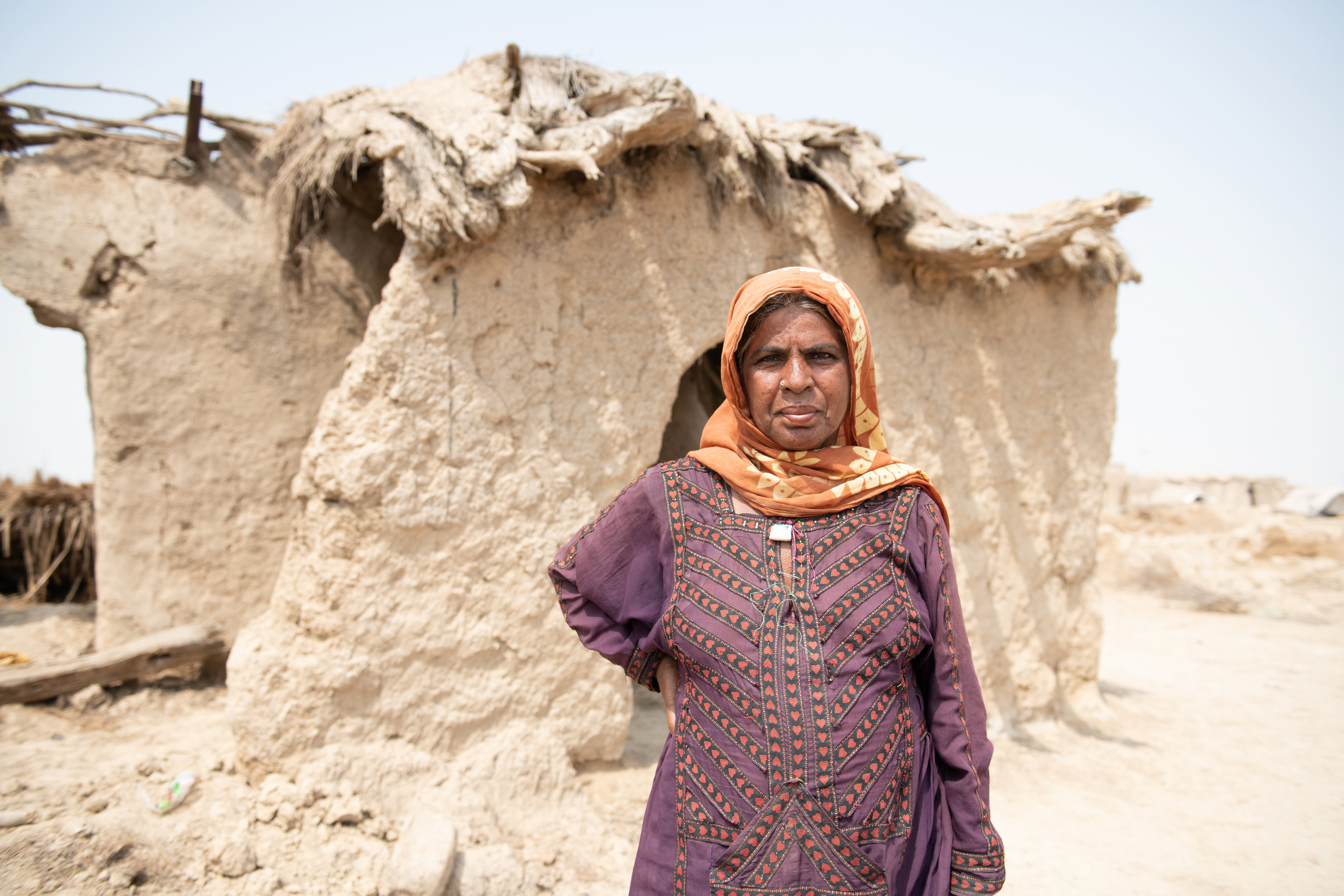Pakistan: Older people facing health catastrophe are being ignored
Published on 25 October 2022 03:05 PM

A new survey on the impact of the floods in Pakistan on older people reveals that hundreds of lives are needlessly being put at risk due to the decimation of health services and the rise of diseases like malaria and diarrhoea, which can be killers to older people with weak immune systems.
The survey from our partner HelpAge International highlighted that 87% of older people in flood-affected areas of Pakistan have a health condition, but only 51% have access to health care, while government and UN assessment reports are largely ignoring their needs.
“The local dispensary has been damaged and there are no doctors to look after us. My husband has to travel miles away to a bigger city to buy medicines.
‘When my husband fell sick, my son became the only breadwinner of the family. After the floods, he couldn’t find any work, and most of our livestock was killed. We sold the last one to meet the basic needs of our family. We don’t know what will happen in the future.” Naheed (60)
More than 1,500 health and support facilities have been badly damaged by the floods.
Of the older people interviewed who have access to health services, more than half said they were too expensive and over a third said that they do not have sufficient medical supplies. Only basic health care centres or private clinics are available to most people, and these fail to meet the needs of those most at risk.
Water-borne diseases

Already weakened by chronic diseases and ageing immune systems, older people in Pakistan are finding it harder to fight against water-borne diseases, such as malaria. These are increasing as a result of the now stagnant water and mosquitoes, especially in Sindh province where 85% of those surveyed by HelpAge have no shelter.
“We have no clean water as the pipes were damaged and I have hepatitis due to the muddy water. There are no medical supplies and even if there was, we couldn’t afford it.” Malooka (70)
In Sindh, 78% of people over 50 surveyed do not have enough food and 59% have no access to clean drinking water. Older people are also struggling to reach toilets (63%) and bathing facilities (62%).
This is causing diseases, like diarrhoea, which can be a killer when immune systems are weak.
A third of interviewees have at least one disability and two thirds said they were unable to reach aid distribution points. So mMany have lost assistive devices, such as glasses, walking sticks and frames and have no money to buy new ones.
Loss of income

A large number of older people were actively working before the floods, but now only 24% of those surveyed have an income. A worrying 61% of those who have been displaced from their homes have had to borrow money to get by. The survey shows that the highest safety concern mentioned by older men and women is financial abuse (38%) such as family members stealing from them.
Outside the public sector workforce, only 2.3 percent of older people in Pakistan receive a pension, so if they are not able to work, they are entirely dependent on aid or their families to survive.
Older people play a vital role in families in Pakistan. This becomes even more important in times of emergency when family members are displaced or migrate for work. But older people who are barely able to meet their own basic needs, are also caring for children, with 78% of those interviewed caring for three or more children. Unsurprisingly, many older people are experiencing severe anxiety.
Follow the link below to read the full report on the HelpAge International website.
A small donation can make such a big difference, please donate today.
 Follow us on social media
Follow us on social media
Check out our social media platforms for the latest updates.
